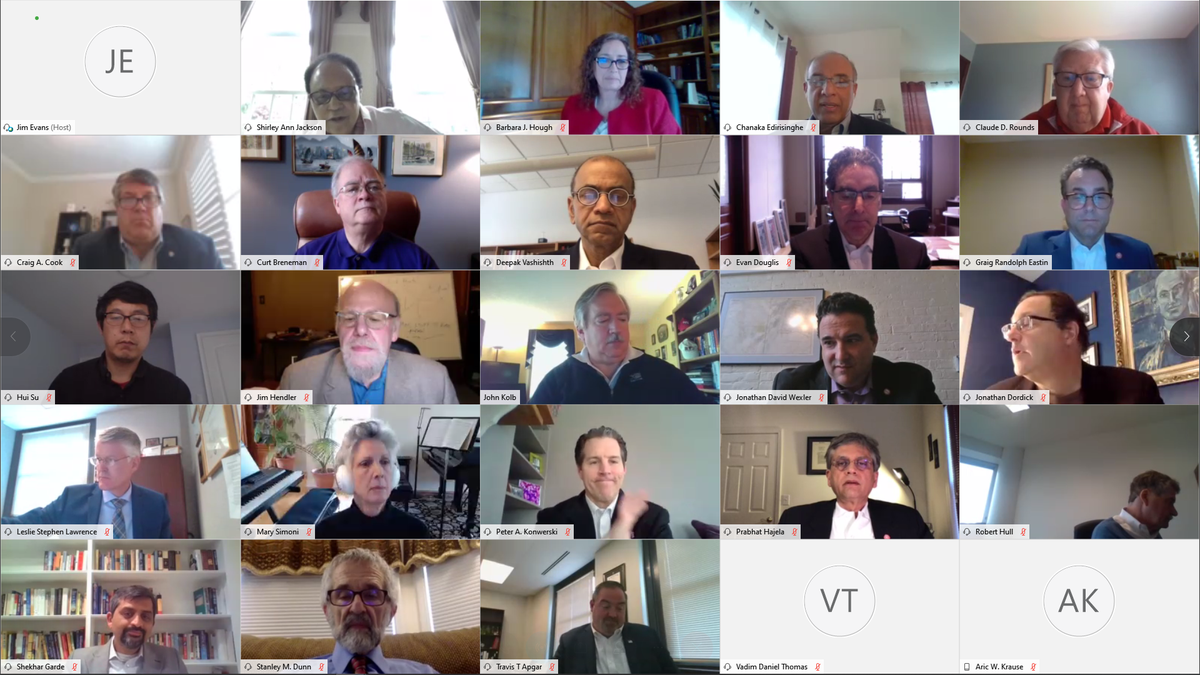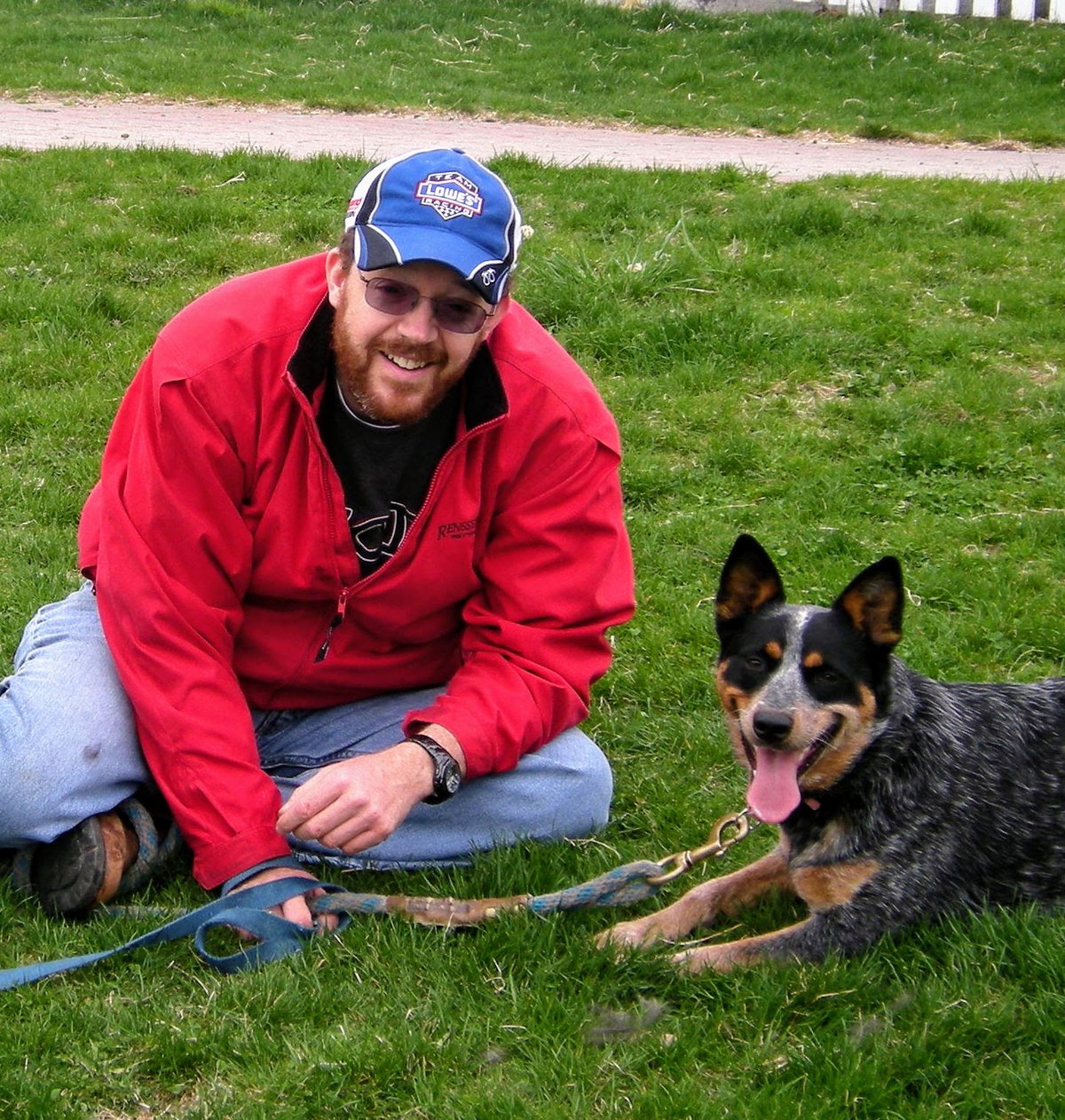Jackson outlines plan for return to campus
In a Webex livestream, President Shirley Ann Jackson announced that the Class of 2023 will not be returning to campus for the Fall 2020 semester. Rensselaer’s plan for a phased return to campus is contingent on the Capital Region moving to Phase Four reopening.
All students, faculty and staff on campus will be required to follow protocols as part of RPI’s previously announced T3SQ plan to ensure campus safety.
Athletics remain under discussion, but a full athletic schedule is not anticipated for this year. Pre-pandemic Pass/No Credit requirements will be in place for the fall semester, as they are for the current summer semester. Student organizations will need to adapt around a 10-person limit for campus gatherings.
Greek housing will most likely not be an option for students in the Fall semester. Reportedly, around 361 students expecting to live in Greek housing may need to seek alternative housing, though President of the Interfraternity Council Chris Vanderloo ’21 advised, in an email sent on June 11, to “hold off encouraging your chapters to seek other arrangements until more is set in stone.”
The sophomore class will not be on campus in the fall, and juniors will be taking their Arch semester away in the spring semester, unless they already have an opportunity secured for the fall. In response to a parent’s question as to what juniors should do if they have already secured a fall internship or co-op, Jackson recommended speaking with school deans and Student Life. However, Jackson elaborated that if some juniors choose to be away in the fall, “in the spring … if they’re taking courses, [they] would be taking them remotely.”
Academics
The fall semester will start on August 31 as scheduled on the academic calendar, but in-person classes will only occur until Thanksgiving break. After Thanksgiving break, courses will switch to remote instruction, and final exams will be taken online.
Whether or not a course can include in-class learning is dependent on the class size. Courses with 60 or more students will be online; if the class requires in-person activity, the Institute is considering reducing class sizes by creating new sections. Classes with 30 or fewer students will be taught in person, and classes of sizes in between will operate in a hybrid format.
Every course, regardless of size, will also be offered in the online format. This way, if students are registered for classes that will include an in-person element but will not be on campus during the fall semester, they will be able to join remotely. Additionally, students who are on campus and test positive will be able to continue coursework online while quarantined.
“Our baseline is that all courses will be available in remote format as well and therefore any participation by remote students in a class that’s being taught live is entirely possible” said Provost Prabhat Hajela.
Normal Pass/No Credit policies will be enforced for the Fall semester, as Hajela stated that “the adjustment to the pass/no credit was done for that one [Spring 2020] semester” only. Hajela explained that the decision to revert back to original P/NC policies was to ensure that Rensselaer students remain competitive applicants to graduate schools and employment.
Campus Health
Jackson emphasized that “students should not expect all of their fellow classmates on the campus in the same term or even on the same day because of the need to de-densify the campus.” In addition to testing those returning to campus as well as self-administered biweekly coronavirus testing, Rensselaer will have six certified contact tracers on campus. Students, faculty, and staff will be required to submit a health and travel log on a daily basis . Previous communications have mentioned an app that will most likely be used for this purpose.
Dr. Lawrence explained that at the time of the online town meeting, since a saliva test has not been approved by the FDA yet, RPI will use the “anterior and mid turbinate nasal swab which each student, faculty, and staff can administer themselves” while being monitored. This test was chosen for comfort and “so that we [RPI] don’t have to burn through as much personal protective equipment.” Lawrence described the three separate facilities that will operate under the Health Center in order “to reduce the risk of transmission of COVID” in the fall. The specimen collection area for the self-administered nose swabs will be separate from the respiratory clinic facility and the general health area, “to minimize exposure to other people who may be coming into the health center.”
Jackson mentioned that the school has planned for quarantine and isolation housing. Epidemiological modeling for contact tracing and plans to de-densify virus hot spots as they arise are currently in the works.
Campus Life
In response to a parent’s question regarding housing for juniors and seniors who are not guaranteed on-campus housing, Dr. Jackson responded that many RPI juniors and seniors do not choose to live on campus, and though “it may seem like it’s a challenge to find off-campus housing in this environment,” she holds that “the landlords are quite hungry.” Rensselaer will uphold their commitment to on-campus housing for freshmen and sophomores, but because of the current public health situation, the Institute will have “no more than two students per living space… and no more than two students per bathroom,” according to Jackson.
Class seating will be in accordance with Center for Disease Control guidelines and “class schedules will be staggered” said Jackson, in order to minimize interactions in campus corridors. While teaching, “faculty members will also practice social distancing and wear face shields.” For performance, art, and studio classes, Jackson stated that Rensselaer is “looking at the role of technology to provide safe and meaningful experiences.”
Masks will be required at all times when outside of personal spaces, and supplies will be provided to clean personal spaces. Jackson said “it’s a combination of people looking after their personal space, disinfection based on the class schedules as much as we can, and then complete cleaning and disinfecting every night.”
Changes to dining services include the removal of buffet-style services, a maximum seating capacity and seating arrangements to account for social distancing, hand sanitizer provisions in dining halls, cleaning and disinfecting between meals, and required temperature checks using “touchless” technology for all dining services staff. Those handling food will be required to wear gloves and face shields.
Vice President for Student Life Peter Konwerski stated that though the cap of 10 people per event “will really limit the type of events, but it doesn’t mean that we won’t have a creative student body who can ... do gatherings virtually and build a sense of community.” After emphasizing the power of “peer influence … especially student to student,” Konwerski expressed faith in student leaders at RPI to lead the way in following social distancing procedures and keeping the Rensselaer community safe.
Jackson added that RPI intends to use Percipio “to provide specific online based training as well as the creation of a series of webinars and … activities as part of training … for everybody.”
Greek Life
Though it has not been confirmed, all Greek life members—approximately 361 students across 25 chapters—who were planning on living in Greek housing may have to seek alternative housing options. In response to a question posed by Grand Marshal Advaith Narayan ’21, Jackson stated that “the likelihood is that we won’t be able to have people live [in] the houses in the fall,” but the Greek community will be able to continue rush activities “albeit in a modified form.”
Jackson continued: “I think it’s important for the Greeks to know that we don’t intend to have them go out of existence or be bankrupt… and that’s why we want to continue with the membership intake and so forth.”
Research
During the meeting, Jackson announced that “the plan to return to on-campus research is proposed in… three initial stages, and then a fourth stage being a return to near-normal interactions.” In order to minimize the numbers of researchers on campus at a given time, Jackson mentioned that there will be at least two research shifts to minimize interactions and account for social distancing procedures. Researchers working off-campus or researchers working on “critical projects” such as COVID-19-related biotechnology research and research in areas critical to national security or are accounted for in the first stage of RPI’s four-phase plan to return to on-campus research. The second stage allows around 10% of the research community to return, prioritizing projects with “key deadlines and milestone requirements,” with the “specific focus on the academic progression of graduate students.” The third stage incorporates the “full experimental research community” but still requires researchers to work in shifts. Specifications for the fourth stage have not yet been made.

 Town Meeting
Town Meeting
 Academics
Academics